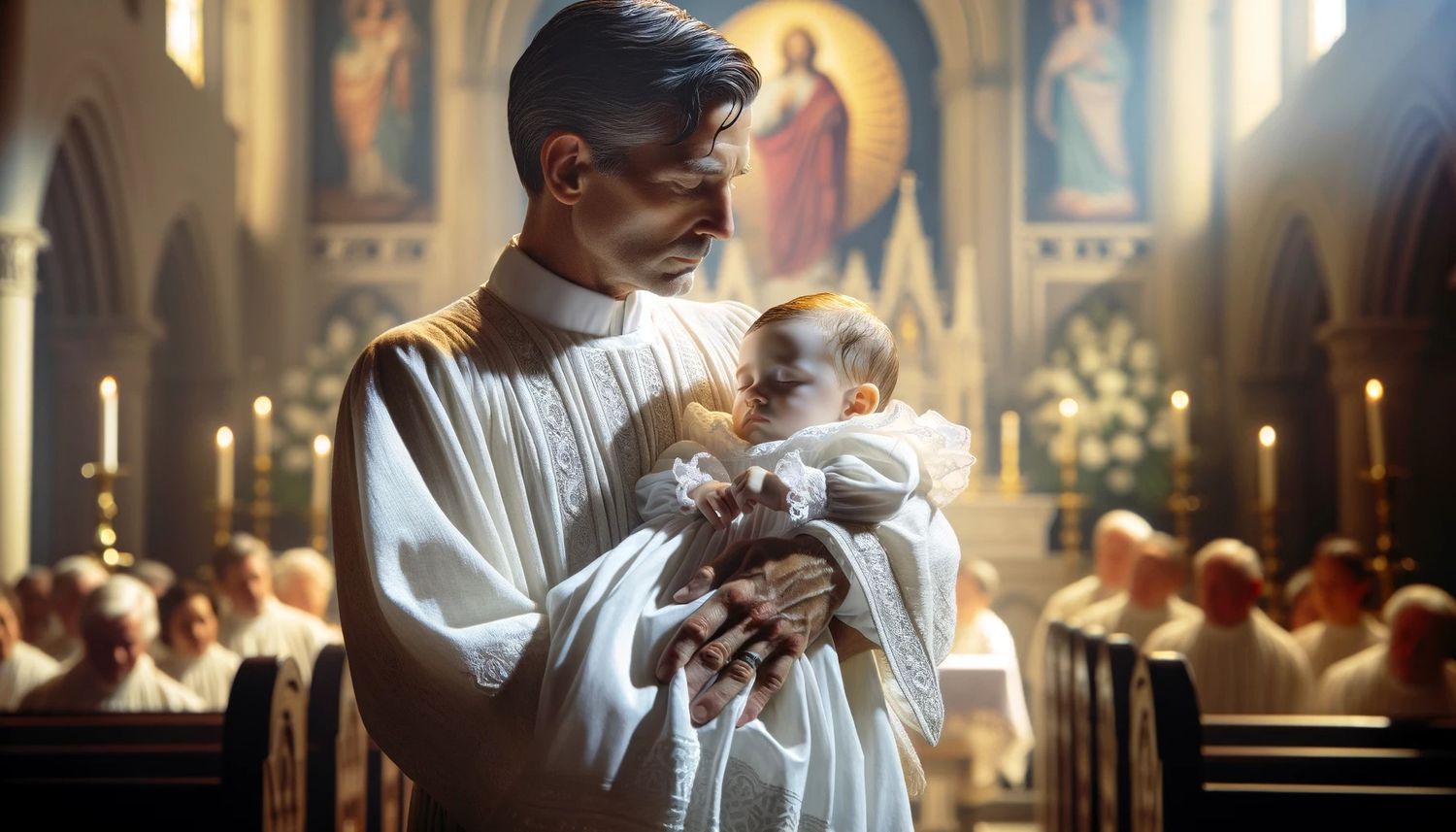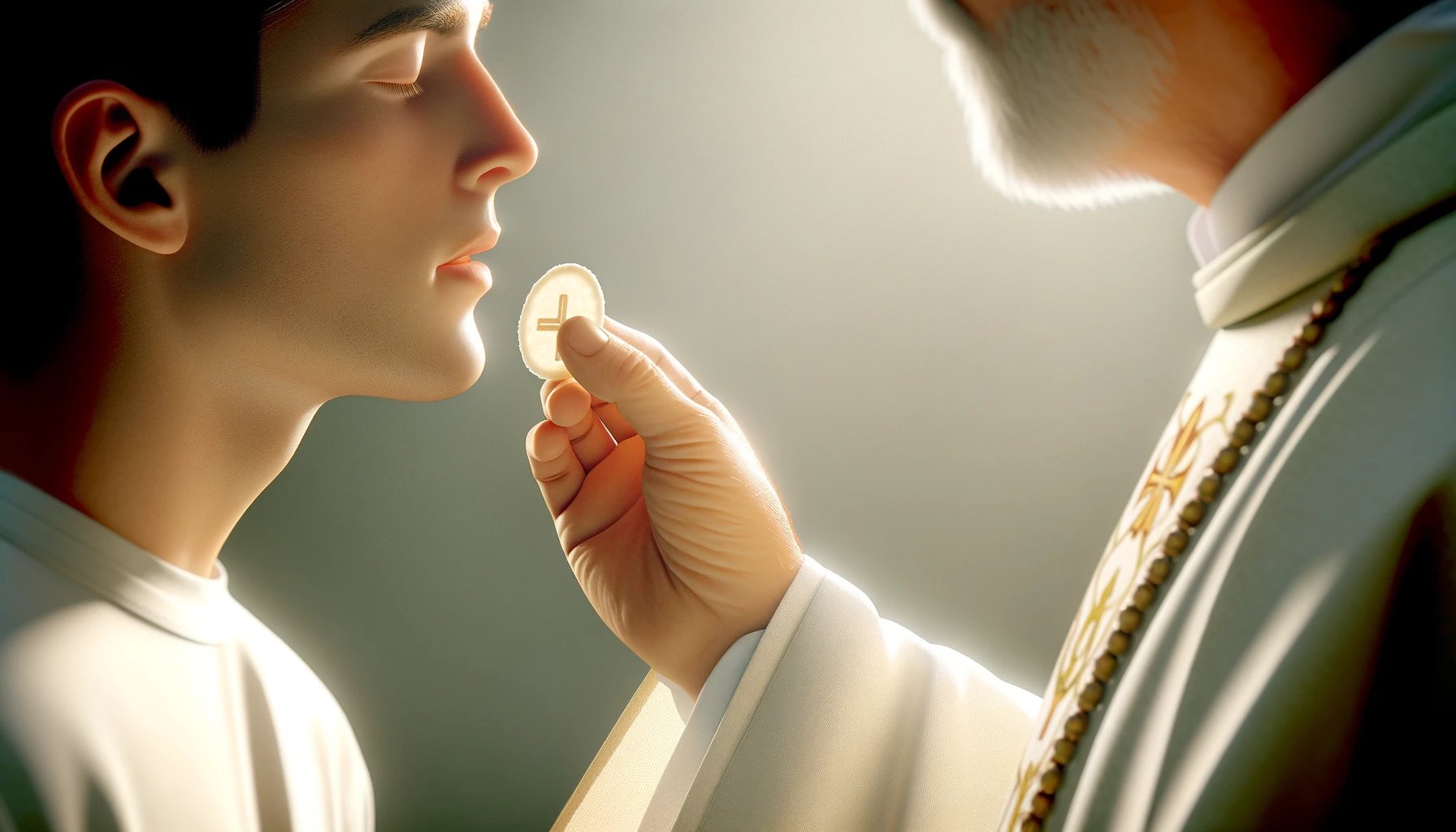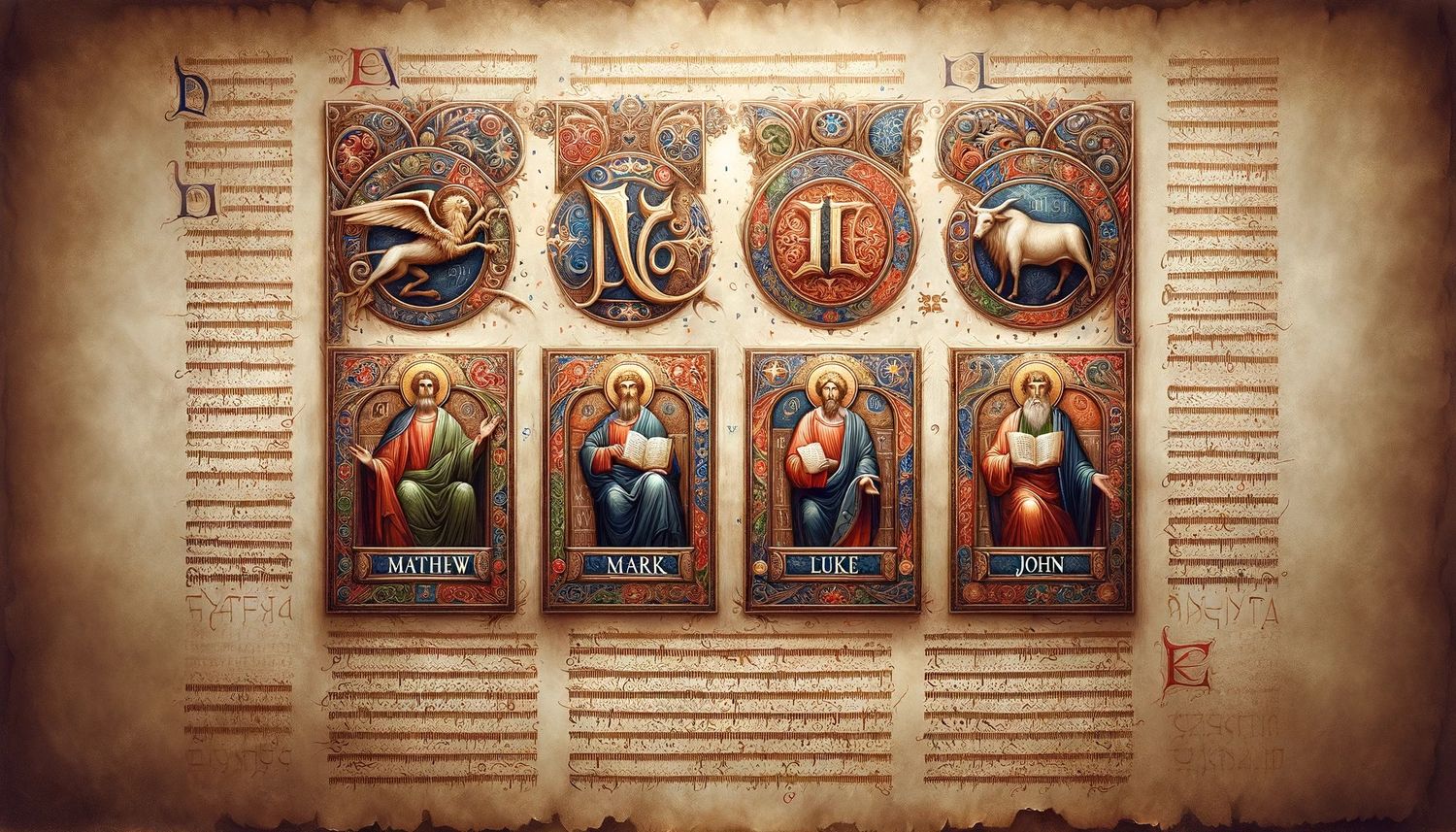Home>Theology and Spirituality>How Many Times Can A Catholic Recieve Baptism


Theology and Spirituality
How Many Times Can A Catholic Recieve Baptism
Published: February 26, 2024
Jason DeRose, Managing Editor at Christian.net, uses his expertise in religion and journalism to deepen understanding of faith's societal impacts. His editorial leadership, coupled with a strong academic background, enriches the platform’s diverse content, earning him recognition in both journalism and religious circles.
Learn about the Catholic perspective on the sacrament of baptism and the frequency at which it can be received. Explore theology and spirituality in this insightful discussion.
(Many of the links in this article redirect to a specific reviewed product. Your purchase of these products through affiliate links helps to generate commission for Christian.net, at no extra cost. Learn more)
Table of Contents
The Significance of Baptism in the Catholic Faith
Baptism holds immense significance in the Catholic faith, as it is considered the gateway to other sacraments and the foundation of the Christian life. It is a sacred ritual that marks the beginning of a person's journey as a member of the Church. Through baptism, individuals are cleansed of original sin, reborn as children of God, and incorporated into the body of Christ, which is the Church. This sacrament is a symbol of spiritual purification and rebirth, signifying a person's initiation into the faith and their commitment to living a life in accordance with the teachings of Jesus Christ.
Read more: How To Renounce Catholic Baptism
Importance of Baptism in Catholicism
-
Cleansing of Original Sin: According to Catholic doctrine, baptism is essential for the remission of original sin, which is believed to be inherited from Adam and Eve. Through the waters of baptism, individuals are cleansed of this original sin and are brought into a state of grace.
-
Rebirth and New Life: Baptism is seen as a spiritual rebirth, where the baptized person is born anew in Christ. This symbolizes a fresh start and a new life dedicated to following the teachings of Jesus.
-
Incorporation into the Church: Through baptism, individuals become part of the universal Church, joining a community of believers and becoming members of the body of Christ.
-
Reception of the Holy Spirit: In the Catholic faith, baptism is also associated with the reception of the Holy Spirit, who strengthens and guides the individual in their Christian journey.
-
Preparation for Other Sacraments: Baptism paves the way for the reception of other sacraments such as Confirmation, Eucharist, Marriage, and Holy Orders, making it a foundational sacrament in the Catholic faith.
Symbolism and Ritual
The ritual of baptism involves the pouring of water or immersion in water, accompanied by the Trinitarian formula invoking the name of the Father, Son, and Holy Spirit. This act symbolizes purification, death to sin, and rising to new life in Christ. The use of water in baptism signifies cleansing and renewal, while the Trinitarian formula reflects the belief in the triune nature of God.
In summary, baptism is a deeply significant sacrament in the Catholic faith, representing spiritual rebirth, incorporation into the Church, and the cleansing of original sin. Its importance lies not only in the ritual itself but also in the lifelong commitment to living out the faith that it signifies.
The Sacrament of Baptism: A Once-in-a-Lifetime Event
The Catholic Church firmly upholds the belief that the sacrament of baptism is a once-in-a-lifetime event. This means that once an individual has been validly baptized, whether as an infant or an adult, the sacrament cannot be repeated. The church's stance on this matter is deeply rooted in its theological understanding of baptism and its significance in the life of a believer. The idea of baptism as a once-in-a-lifetime event is based on the belief that through baptism, a person is spiritually reborn and initiated into the body of Christ. This initiation is considered permanent and indelible, leaving an indelible mark on the soul, known as the "character" of baptism. This character is believed to remain with the individual throughout their life, signifying their belonging to Christ and their incorporation into the Church.
Reasons for the Once-in-a-Lifetime Nature of Baptism
-
Spiritual Rebirth and Incorporation: Baptism is viewed as the sacrament through which a person is spiritually reborn and incorporated into the body of Christ. This incorporation is seen as a permanent and unrepeatable event, marking the beginning of the individual's life as a Christian.
-
Indelible Character: The Catholic Church teaches that baptism imprints an indelible spiritual mark on the soul of the baptized person, signifying their belonging to Christ. This character is believed to remain with the individual for the rest of their life, making the sacrament unrepeatable.
-
Cleansing of Original Sin: According to Catholic doctrine, baptism is essential for the remission of original sin. Once a person has been cleansed of original sin through baptism, there is no need for this aspect of the sacrament to be repeated.
-
Initiation into the Church: Baptism is the sacrament of initiation into the Christian faith and the Catholic Church. Once a person has been initiated through baptism, they are considered full members of the Church, and this status is not subject to repetition.
Read more: How Many Gospels In The Catholic Bible
Implications of the Once-in-a-Lifetime Nature
The once-in-a-lifetime nature of baptism has several implications for Catholics. It underscores the permanent nature of the spiritual transformation that occurs through baptism and emphasizes the lifelong commitment to living out the faith. It also highlights the significance of the sacrament as the foundation of the Christian life, marking the beginning of a journey of faith that is meant to be lived out in accordance with the teachings of Christ.
In summary, the Catholic Church's teaching on the once-in-a-lifetime nature of baptism is based on its theological understanding of the sacrament as a permanent and unrepeatable initiation into the body of Christ. This understanding underscores the profound significance of baptism in the life of a believer and the lifelong commitment it entails.
Can a Catholic Receive Baptism More Than Once?
In the Catholic faith, the sacrament of baptism is considered a once-in-a-lifetime event, and the Church's teaching is clear that the sacrament cannot be repeated. This stance is rooted in the belief that through baptism, a person is spiritually reborn and initiated into the body of Christ, leaving an indelible mark on the soul. However, there are rare circumstances where the question of receiving baptism more than once may arise. These situations may include cases where the validity of a previous baptism is in doubt, such as uncertainty about the use of the correct form or matter, or the intention of the minister. In such cases, the Church may conduct a conditional baptism, which is performed with the condition "If you are not already baptized…" to ensure that if the previous baptism was valid, the conditional baptism has no effect. It's important to note that this is an exceptional measure taken when there are genuine doubts about the validity of a previous baptism.
Reasons for Conditional Baptism
- Doubt Regarding Validity: Conditional baptism is administered when there are legitimate doubts about the validity of a previous baptism. This may arise in cases where the essential elements of baptism, such as the use of water and the Trinitarian formula, are not clearly evident, or when the minister's intention is uncertain.
- Ensuring Validity: The conditional baptism is a precautionary measure to ensure that if the previous baptism was not valid, the individual receives the sacrament of baptism properly. It provides a sense of certainty and assurance regarding the individual's status within the Church.
The Role of the Church
The decision to administer a conditional baptism is not taken lightly and is typically made by a competent ecclesiastical authority, such as a bishop or a pastor. The Church exercises caution and prudence in such matters, seeking to uphold the integrity of the sacraments while also addressing the pastoral needs of the faithful. It is important to approach the question of receiving baptism more than once with reverence and respect for the sacrament, recognizing the exceptional nature of conditional baptism and the Church's responsibility to ensure the spiritual well-being of its members.
In summary, while the Catholic Church upholds the once-in-a-lifetime nature of baptism, there are rare circumstances where a conditional baptism may be administered due to genuine doubts about the validity of a previous baptism. This exceptional measure is taken to address uncertainties and to provide assurance regarding the individual's reception of the sacrament.
Read more: Who Can Recieve Baptism
The Role of Reconciliation in the Catholic Church
Reconciliation, also known as the sacrament of Penance or Confession, plays a significant role in the spiritual life of Catholics. It is a sacrament of healing and forgiveness, through which individuals have the opportunity to confess their sins, express contrition, and receive absolution from a priest. The role of reconciliation in the Catholic Church is multifaceted, encompassing aspects of spiritual healing, restoration of grace, and reconciliation with God and the community of believers.
Importance of Reconciliation
-
Spiritual Healing: The sacrament of reconciliation is a means of spiritual healing, providing individuals with the opportunity to acknowledge their sins, express genuine sorrow, and receive God's forgiveness. It offers a path to inner healing and the restoration of spiritual well-being.
-
Restoration of Grace: Through the sacrament of reconciliation, Catholics have the opportunity to be reconciled with God and the Church, restoring the grace that may have been weakened or lost through sin. This restoration of grace strengthens the individual's relationship with God and the community of believers.
-
Reconciliation with God and Others: The sacrament of reconciliation emphasizes the importance of seeking reconciliation not only with God but also with others. It encourages individuals to reflect on their actions, seek forgiveness from those they have wronged, and strive to mend broken relationships.
The Process of Reconciliation
-
Examination of Conscience: Before receiving the sacrament of reconciliation, Catholics are encouraged to engage in an honest examination of conscience, reflecting on their thoughts, words, and actions in light of the teachings of Christ.
-
Confession of Sins: In the sacrament of reconciliation, individuals confess their sins to a priest, acknowledging their failings and expressing genuine contrition. The act of confessing sins is an essential step in the process of seeking forgiveness and reconciliation.
-
Act of Contrition: Following the confession of sins, individuals express contrition through an act of contrition, a prayer in which they express sorrow for their sins and their commitment to amending their ways.
-
Absolution: The priest, acting in the person of Christ, offers absolution, imparting God's forgiveness and reconciling the individual with God and the Church. This act of absolution signifies the restoration of grace and the assurance of God's mercy.
The Role of the Priest
In the sacrament of reconciliation, the priest plays a crucial role as a minister of God's mercy and reconciliation. The priest listens to the confessions of the faithful, offers counsel and guidance, and extends God's forgiveness through the sacramental act of absolution. The priest serves as a compassionate guide, assisting individuals in their journey of repentance, healing, and spiritual renewal.
Read more: How Many Padrinos In A Baptism
The Fruits of Reconciliation
The sacrament of reconciliation bears abundant fruits in the lives of believers. It brings about spiritual healing, inner peace, and the restoration of grace. It fosters a sense of accountability and responsibility for one's actions, leading to personal growth and transformation. Moreover, reconciliation strengthens the bond of unity within the Church, promoting a spirit of forgiveness, compassion, and reconciliation within the community of believers.
In essence, the sacrament of reconciliation holds a central place in the spiritual life of Catholics, offering a path to healing, forgiveness, and reconciliation with God and the community. It serves as a source of grace and renewal, guiding individuals on their journey of faith and fostering a spirit of repentance and reconciliation.
Understanding the Catholic Church's Stance on Multiple Baptisms
The Catholic Church's stance on multiple baptisms is unequivocal: the sacrament of baptism is considered a once-in-a-lifetime event, and its indelible nature precludes the possibility of receiving it more than once. This doctrinal position is firmly rooted in the Church's theological understanding of baptism as the gateway to the Christian life, marking the spiritual rebirth and incorporation of the individual into the body of Christ. The Church teaches that through baptism, a person is cleansed of original sin, receives the gift of faith, and becomes a member of the Church, with an indelible spiritual mark on their soul. This understanding underscores the permanent and unrepeatable nature of the sacrament, emphasizing its profound significance in the life of a believer.
Reasons for the Once-in-a-Lifetime Nature of Baptism
- Spiritual Rebirth and Incorporation: Baptism is viewed as the sacrament through which a person is spiritually reborn and incorporated into the body of Christ. This incorporation is seen as a permanent and unrepeatable event, marking the beginning of the individual's life as a Christian.
- Indelible Character: The Catholic Church teaches that baptism imprints an indelible spiritual mark on the soul of the baptized person, signifying their belonging to Christ. This character is believed to remain with the individual for the rest of their life, making the sacrament unrepeatable.
- Cleansing of Original Sin: According to Catholic doctrine, baptism is essential for the remission of original sin. Once a person has been cleansed of original sin through baptism, there is no need for this aspect of the sacrament to be repeated.
- Initiation into the Church: Baptism is the sacrament of initiation into the Christian faith and the Catholic Church. Once a person has been initiated through baptism, they are considered full members of the Church, and this status is not subject to repetition.
The once-in-a-lifetime nature of baptism is a foundational aspect of the Catholic Church's sacramental theology, reflecting the Church's reverence for the sacrament and its commitment to upholding the integrity of the sacraments. This understanding guides the pastoral care and spiritual formation of the faithful, emphasizing the lifelong commitment to living out the faith that baptism signifies. It also underscores the Church's responsibility to ensure the proper administration and reception of the sacraments, safeguarding their sacredness and significance in the life of believers.
In summary, the Catholic Church's stance on multiple baptisms is grounded in its theological understanding of baptism as a once-in-a-lifetime event, marking the spiritual rebirth and incorporation of the individual into the body of Christ. This understanding highlights the profound significance of baptism in the life of a believer and underscores the Church's commitment to upholding the integrity of the sacraments.












